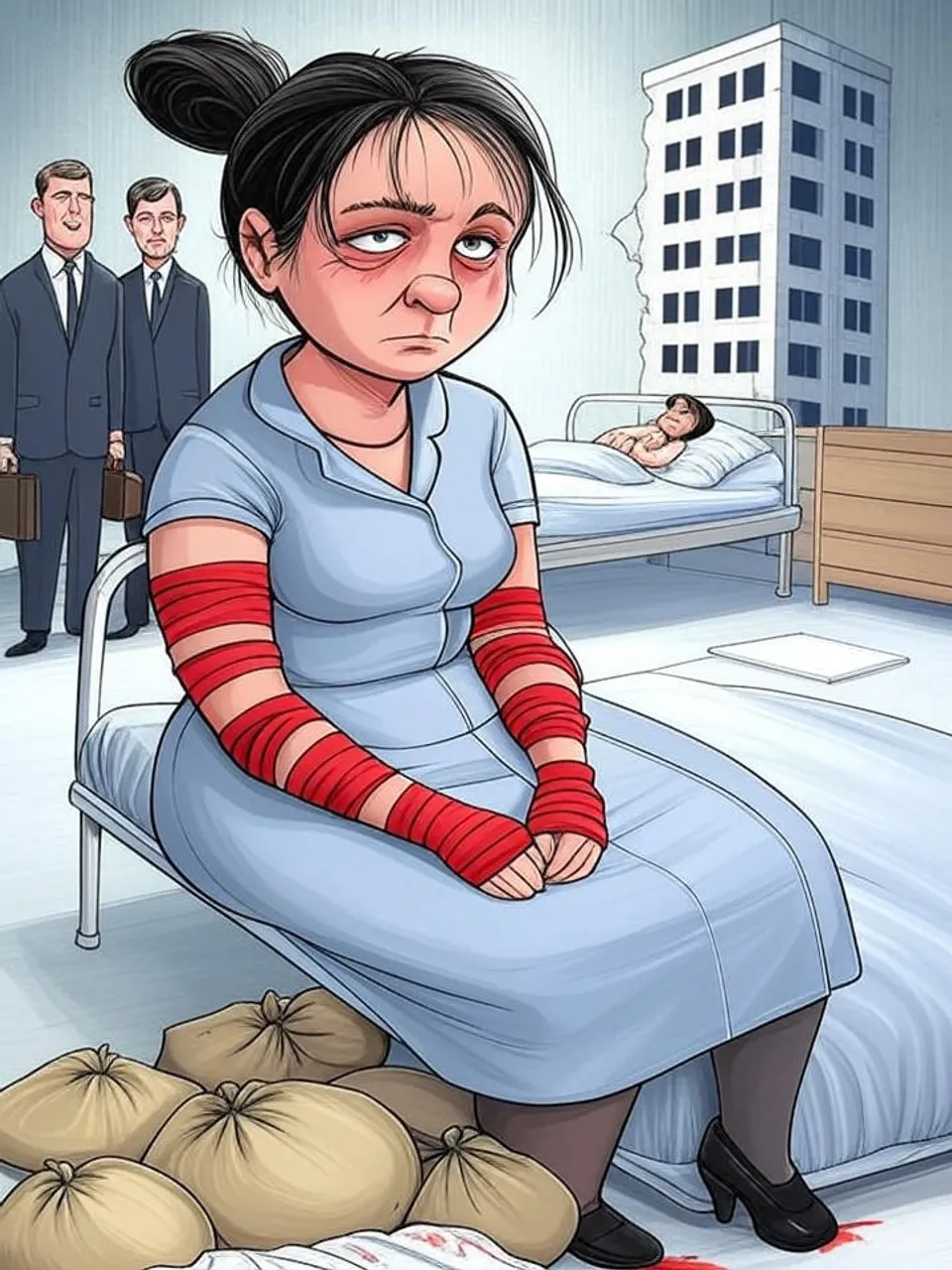Thirty Hours Awake, Two Lives Ended

Coroner Blames NHS Failures in Prestwich Home Birth Tragedy
A high-risk mother's preventable death exposes NHS midwifery breakdowns: exhausted staff, vague warnings, and ignored protocols claim lives amid chronic understaffing.
Commentary Based On
The Guardian
‘Gross failure’ led to deaths of mother and baby in Prestwich home birth
Jennifer Cahill bled out five pints during a home birth in Prestwich last June, her high-risk pregnancy ignored by inadequate NHS counseling. Her newborn daughter, Agnes Lily, arrived not breathing with the umbilical cord around her neck and died four days later in hospital. The coroner deemed this a gross failure of basic medical care, a scenario unfit for modern Britain.
Home births account for one in 50 deliveries in England and Wales, but guidelines restrict them to low-risk cases. Cahill’s first birth in 2021 ended in a postpartum haemorrhage requiring transfusion, marking her as high-risk. Hospital delivery was advised, yet no senior midwife reviewed her choice to ensure informed consent.
Counseling fell short from the start. Cahill received no explicit warnings about death risks or the superiority of hospital care. Manchester University NHS Foundation Trust admitted she should have seen a senior for risk discussion, a referral that never happened.
Midwives Julie Turner and Andrea Walmsley attended after 12-hour shifts, awake over 30 hours by delivery’s end. They lacked confidence in Cahill’s detailed birth plan, which demanded low lighting and whispers, leaving them hesitant to intervene. Vital signs went unrecorded properly; the baby’s heart rate ended up scrawled on a disposable incontinence pad.
Exhaustion compromised their actions. Walmsley, unfamiliar with home haemorrhages, missed signs of Cahill’s anaemia and pre-eclampsia until after her death. Turner noted office unease over home birth calls, with staff dodging on-call duties amid rising complex plans.
Cahill refused some interventions, like a Group B Strep test, echoing her first birth where her son developed sepsis. Midwives feared confrontation; Walmsley worried about ejection for pushing back on refusals. Syntometrine, which prevents excessive bleeding, went unused at Cahill’s insistence, unchecked by firm guidance.
This case exposes maternity service fractures built over years. Post-Covid restrictions fragmented care, with midwives rotating without continuity, as Rob Cahill described his wife’s first stressful hospital experience. Home birth requests surged, straining an already fatigued workforce.
NHS midwifery now operates on euphemisms over clarity. Experts criticized “out of guidance” phrasing instead of “against medical advice,” prioritizing relational softness. Informed choice demands blunt facts, including mortality risks, yet delivery avoided them to maintain trust.
Accountability remains elusive. The trust accepts liability but faces no structural penalties. Coroner Joanne Kearsley will urge reforms to medical bodies, changes Rob Cahill welcomes but notes arrive too late—after his wife and daughter’s deaths.
Such tragedies recur in under-resourced systems. Maternity units nationwide report staffing shortages; a 2023 Royal College of Midwives survey found 86% of trusts below safe levels. Preventable errors, from poor handover to ignored protocols, claim lives yearly.
Britain’s maternity care once set global standards, with low infant mortality in the 1990s. Today, rates lag peers like Sweden, where integrated hospital models prevail. Home birth advocacy clashes with evidence, amplified by NHS gaps in education and oversight.
Institutional incentives perpetuate this. Midwives silence concerns to avoid reprisal, as Walmsley put it: stick your head up, get shot at. Governments across parties cut real-terms funding—£1.5 billion less for maternity since 2010—while demand grows.
Ordinary families bear the cost. Cahill, an export manager seeking control after a traumatic first birth, met Victorian horrors instead. Her story reveals how power imbalances in care delivery erode safety nets.
This death underscores the NHS’s deeper decay: services rationed by fatigue and fear, not expertise. Preventable losses mount as accountability evaporates, signaling a welfare state hollowed out by systemic neglect. Britain’s decline manifests in the quiet rooms where lives slip away unmarked.
Commentary based on ‘Gross failure’ led to deaths of mother and baby in Prestwich home birth by Hannah Al-Othman on The Guardian.